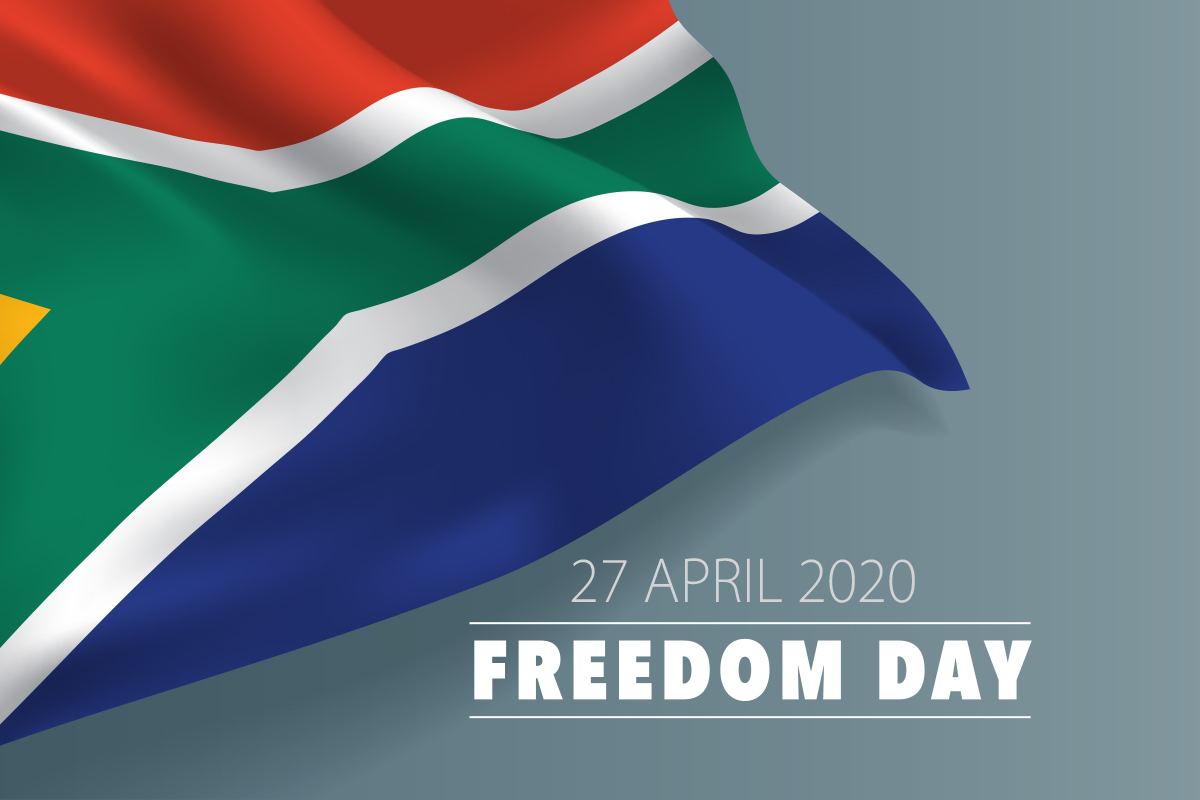This year, South Africans celebrate Freedom Day in conditions of confinement. We are reminded that on this day, 26 years ago, for the first time in history all South Africans exercised the most basic of rights, the right to vote. This election ushered in a system of democratic governance based on the values of equality, inclusion and tolerance, as entrenched in the Constitution of the Republic of South Africa.
On this day, we are reminded that South Africa has transitioned from a culture of unquestioned authority to a culture of reasoned and evidence-based justification. During this time of COVID-19, we have seen this vividly illustrated. To a large extent, the government has acted with transparency by sharing and allowing access to relevant information.
We are further reminded that South Africa has moved from a culture of executive dictates to one of rule-based oversight. Again, measures adopted in response to COVID-19 illustrate this trend. Instead of declaring a state of emergency, which allows for the suspension of human rights, our government opted to announce a state of disaster. The difference is important, because it means that the regulations issued and measures taken under the Disasters Management Act can be – and have been -checked against any of the rights in the Constitution. The principle remains: all our rights may be limited, but only to serve a justifiable objective that is proportionate and reasonable in the circumstances. This means that the principle of the rule of law is left intact, and that our memories are not jerked back to the apartheid government’s easy resort to states of emergency.
However, we cannot but note that South Africa’s incomplete transition from a culture of inequality to greater material equality has been starkly revealed during the response to COVID-19. It is those who have already been most marginalised – such as the homeless, people living in informal settlements, LGBTQ+ persons, migrants, incarcerated persons and persons with disabilities – who are most at risk in ‘lockdown’ conditions.
The journey to equality and freedom for all South African is incomplete. The COVID-19 lockdown measures have made this more visible than ever. Women in abusive relationships are not free from violence. Those at the receiving end of excessive violence by law enforcement agents are not free from fear. Those living in informal settlements, those who have endured forced evictions (even during the “lockdown” period) and who do not know where their next meal will come from, are not free from insecurity and want.
We urge the government to release selected and carefully circumscribed categories of persons held in correctional centres, in order to reduce overcrowding and the risk of an accelerated spread of COVID-19 within these institutions. In the course of such an exercise a light should be shone on the circumstances that in the first place had given rise to their incarceration. Even beyond the imperative of the pandemic, the circumstances of those awaiting trial and who cannot pay small amounts of bail, and those convicted for “petty” offences who are imprisoned merely because they are unable to pay small fines, should be addressed.
Working towards greater freedom, we urge the government to take the lessons from the COVID-19 experience to heart. The greatest benefit that we can derive from this period of “sacrificing” freedoms is that the lessons learnt during this time will guide us to a post-COVID-19 society of greater, more equal and more meaningful freedom.
For more information, please contact:
Prof Frans Viljoen
Director, Centre for Human Rights
Faculty of Law,
University of Pretoria
frans.viljoen@up.ac.za
www.chr.up.ac.za


